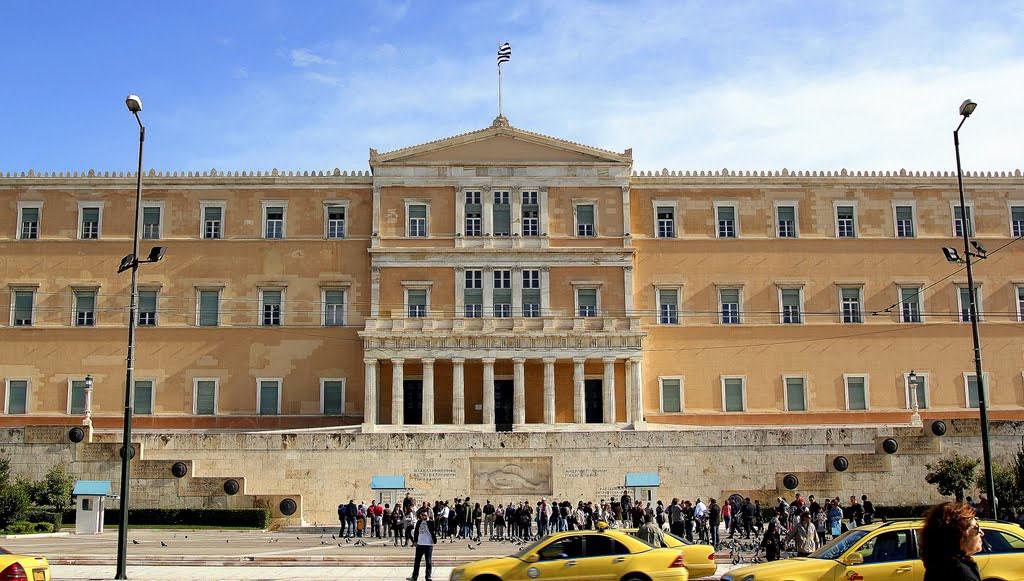Since 2010, Greece has faced increased tax rates, massive layoffs and widespread poverty due to enormous budget cuts enacted after its bailout by eurozone partners. These budget cuts, known as austerity measures, and strict economic policies accompanied the bailout of debt- ridden Greece. The recently elected leader of the left- wing party in Greece (Syriza), Alexis Tsipras, promised to renegotiate the austerity policies. According to Stelios Buras of the Wall Street Journal, Tsipras stated that Greece would refuse to accept an extension of its current bailout and its accompanying restrictions. Instead, he will “seek a bridge loan from its interaction creditors [and] change the terms of the previous funding agreements that were agreed to by [his] predecessors.” Many argue that to making and keeping such promises is as irresponsible as it is going back on Greece’s previous commitments and signed agreements. However, the policies previously implemented were based on unrealistic premises and have crippled Greece both economically and morally. As such, Mr. Tsipras may not necessarily be acting irresponsibly — he is arguing that the previous program needs to be amended in order to bring Greece out of the crisis. The eurozone should renegotiate Greece’s terms of repaying its debt.
For decades, the Greek government was borrowing at low rates and using the money mostly for consumption. This was possible due to easy access to a strong currency — the Euro — and the full consent of Greece’s European partners. In 2010, it became evident that the debt in Greece had risen unsustainably, and Greece reached a “standby agreement” with the International Monetary Fund (IMF), the European Central Bank (ECB) and the European Commission. This ensemble, called Troika, offered bailout loans on the condition that Greece would place harsh reform and austerity policies on the economy, with the hope of improving Greece’s international competitiveness and productivity.
Troika believed that while unemployment would rise from 9.4 percent in 2009 to 15 percent in 2012 as a result of the austerity measures, it would fall back down shortly after. However, overall unemployment in Greece is currently at 26 percent and youth unemployment at 57 percent. So, what went wrong?
Many commentators attribute this “failure” to Greece’s inefficient implementation of the reform and austerity measures. However, the Nobel Prize-winning economist Paul Krugman argues that this cannot be further from the truth; Greece did carry through with its promises by “imposing savage cuts in public services, wages of government workers, and social benefits.” Indeed, due to repeated waves of austerity, “public spending was cut much more than the original program envisaged, and it’s currently about 20 percent lower than it was in 2010.” This has resulted in Greece’s percentage of debt to GDP rising. Krugman asserts, “Troika, while pretending to be hard-headed and realistic, was peddling an economic fantasy […] and the Greek people have been paying the price for those elite delusions.” He continues by stating that the reform and austerity policies relied on the belief that confidence would increase in the private sector, which would mean that “the direct job-destroying effects of spending cuts would be more than made up for by a surge in private sector optimism.”
While it is true that Greece has been able to achieve a primary budget surplus — excluding interest on the debt — through great sacrifices, running at around 1.5 percent of its GDP, Troika’s demands are impossible. According to Krugman, Troika is essentially demanding “that Greece make sacrifices on the order of an additional 7.5 or 8 percent of GDP.” Instead of focusing on debt, we have to focus on increasing productivity. This would include investing in infrastructure, education, federal tax incentives, energy and social welfare provisions. As a result, the economy could grow rather than stagnate and shrink.
The negotiations between Greece and the EU have boiled down to what international relations scholars call a game of chicken. As Krugman bluntly states, Germany is using Greece’s banking system as leverage, while Greece is using the stability of the European Union. This confrontation has been gaining momentum, and many worry that it will result in Greece being forced to leave the eurozone. The failed negotiations in Berlin on Monday have strengthened concerns about such an exit. For Greece, this outcome would be disastrous as living standards would fall, rendering the Greek government unable to borrow money, pay social benefits and civil servants’ wages and even import necessary goods, since their price would increase drastically. As such, the need for renegotiations should only continue if it does not lead to Greece’s exit from the eurozone.
Such an exit is also problematic for the eurozone as it hinders its moral and economic stability. As Robert Peston of BBC News argues, the eurozone relies on the concept that once a country joins it, it will be part of it forever. If Greece exits, this whole foundation will be shaken and “those who control the world’s huge pools of liquidity or cash will start placing bets on the next country to exit.” If they start seeing some countries as riskier investments, they will be less likely to invest in that specific country. This will result in eurozone fragmentation, where other countries will also start thinking of leaving, while widening the gap between the “access to global capital [among] vulnerable and stronger eurozone economies [that] would reinforce diverging economic performances.” Therefore, to avoid this, the EU and Greece must find a mutually beneficial compromise — one that is realistic and brings economic growth while retaining investor trust in the eurozone.




